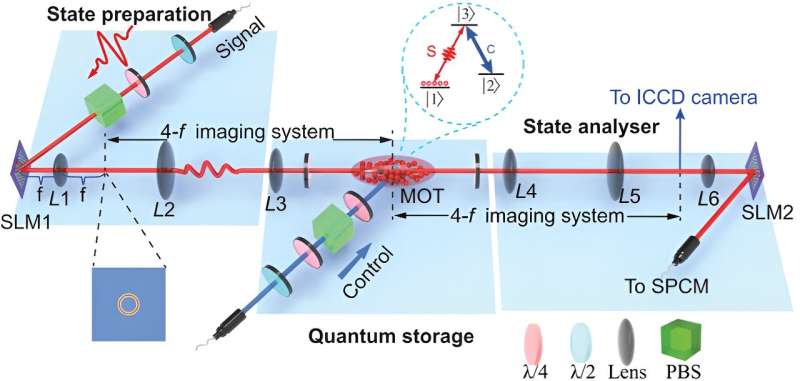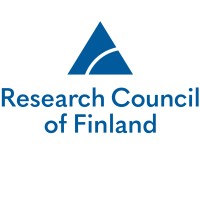Quantum News Briefs: January 16, 2024: Finnish Quantum Flagship (FQF) receives €13M in Funding; Rigetti Computing Awarded Innovate UK Grant to Develop Quantum Machine Learning Techniques for Financial Data Streams; Chinese Researchers Take A new approach to realize highly efficient, high-dimensional quantum memories; and MORE!

Quantum News Briefs: January 16, 2024:
Finnish Quantum Flagship (FQF) receives €13M in Funding
Finland is set to significantly enhance its quantum technology capabilities with a €13 million funding boost from the Research Council of Finland for the Finnish Quantum Flagship (FQF), an eight-year project starting in March 2024. This funding, to be matched by member organizations, will support the consortium of leading Finnish institutions, including Aalto University (coordinator), VTT Technical Research Centre of Finland, and several universities. Under Professor Peter Liljeroth’s leadership, the FQF aims to elevate Finland’s global standing in quantum research and technology. A key focus is on attracting international talent and fostering national and international collaboration, particularly with Nordic countries and the United States. The project, housed within InstituteQ, will drive research excellence, technological adoption, commercial opportunities, and national training in quantum science and technology, aiming to position Finland as a leader in this rapidly evolving field.
Rigetti Computing Awarded Innovate UK Grant to Develop Quantum Machine Learning Techniques for Financial Data Streams

Rigetti UK Limited, a subsidiary of Rigetti Computing, Inc., has announced a collaboration with Amazon Web Services (AWS), Imperial College London, and Standard Chartered to develop advanced quantum machine learning techniques for the finance sector. This project, backed by an Innovate UK grant, aims to enhance classical machine learning methods used by financial institutions for processing complex data streams. The consortium will leverage Rigetti’s quantum computing technology, Standard Chartered’s datasets, Imperial College’s expertise in classical machine learning, and AWS’s high-performance computing resources. Their research will focus on developing quantum signature kernels and feature maps and benchmarking them against classical methods. This initiative is expected to improve efficiency in financial services like credit risk evaluation and market-making services and contribute to the UK’s quantum computing research efforts. The project, which began on January 1, 2024, will explore the potential of quantum computing in finance, aiming to achieve quantum advantage and future-proof businesses in a rapidly evolving technological landscape.
Chinese Researchers Take A new approach to realize highly efficient, high-dimensional quantum memories

Researchers at the University of Science and Technology of China and Hefei Normal University have developed a highly efficient 25-dimensional memory based on cold atoms. This advancement in quantum storage, as detailed in a paper published in Physical Review Letters, surpasses the limitations of two-dimensional quantum memories by increasing information capacity and noise resilience. The team, led by Dong Sheng Ding, utilized the unique properties of the perfect vortex optical field and the mode-independent interaction between light and matter for this development. The memory system, consisting of signal photons, a control light beam, a Rubidium cold atomic ensemble, and a spatial light modulator, allows for storing and retrieving high-dimensional quantum information. This achievement not only boosts the capacity and transmittable capability of quantum communication but also opens avenues for fault-tolerant quantum computing. The researchers successfully demonstrated the storage of 25-dimensional states. They theorized the potential for scaling up to 100 or more dimensions, paving the way for practical high-dimensional quantum memories and developing high-dimensional quantum repeaters for quantum communication networks.
In Other News: Interesting Engineering article: “Quantum cramming: Junk becomes gems in new qubit breakthrough”

Researchers from the Paul Scherrer Institute PSI, ETH Zurich, and EPFL have challenged the prevailing notion in quantum computing that solid-state qubits require ultra-clean environments to function effectively. Their study reveals that dense arrays of long-lived qubits can actually thrive in seemingly disordered settings. The team, led by Gabriel Aeppli, discovered that densely packing rare-earth ions, specifically terbium, into yttrium lithium fluoride crystals, forms robust qubits from interacting pairs of ions. Although rare within the crystal, these pairs demonstrate significantly longer coherence times than single ions due to their unique electron shell states. These qubits remain stable amidst the ‘quantum mess’ as their entangled state prevents them from interacting with isolated terbium ions. This approach also benefited from applying a precisely tuned magnetic field that cancels out disturbances from nuclear spins, resulting in non-magnetic qubit states with lifetimes up to a hundred times longer than those of single ions. This breakthrough suggests that a certain level of ‘mess’ might actually be beneficial in quantum computing, potentially leading to the development of more efficient solid-state qubits.
Kenna Hughes-Castleberry is the Managing Editor at Inside Quantum Technology and the Science Communicator at JILA (a partnership between the University of Colorado Boulder and NIST). Her writing beats include deep tech, quantum computing, and AI. Her work has been featured in Scientific American, Discover Magazine, New Scientist, Ars Technica, and more.






















